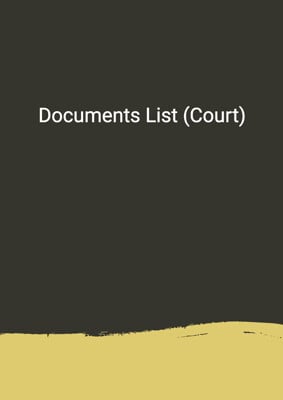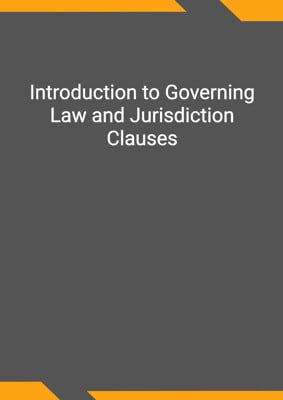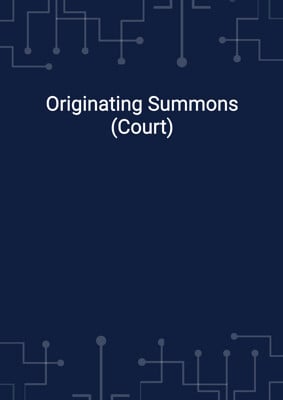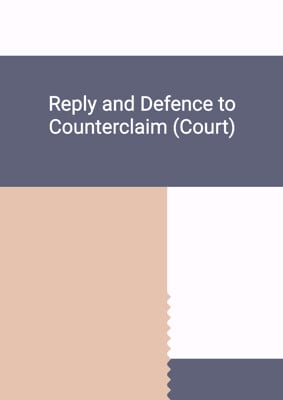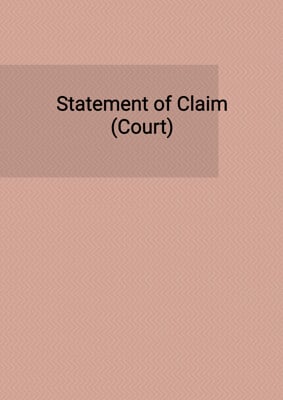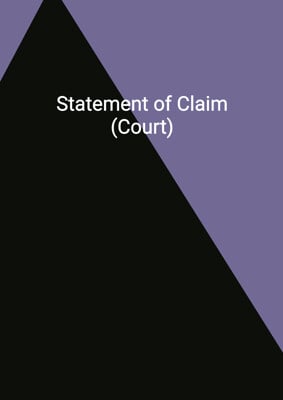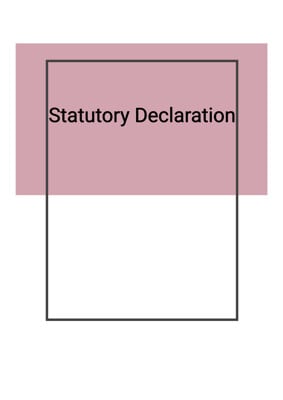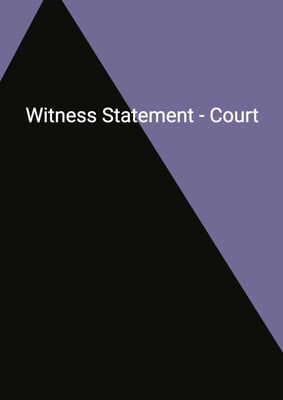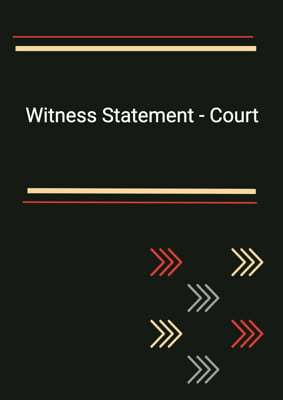How to Tailor the Document for Your Need?
01
Create Document
Fill in the details of the parties. You can click the "Fill with Member’s Information" button to complete it with information saved to your account.
02
Fill Information
Please fill in any additional information by following the step-by-step guide on the left hand side of the preview document and click the "Next" button.
03
Get Document
When you are done, click the "Get Document" button and you can download the document in Word or PDF format.
04
Review Document
Please get all parties to review the document carefully and make any final modifications to ensure that the details are correct before signing the document.
Document Preview
Document Description
The document titled 'Damage-based agreement' is a non-contentious business agreement that outlines the terms and conditions for pursuing employment tribunal claims. It is important because it provides a clear understanding of the rights and obligations of both parties involved in the agreement.
The entire document is divided into several sections, each serving a specific purpose. The first section is the 'Background' section, which explains the legal basis for the agreement and the regulations it falls under. It also defines key terms such as 'costs', 'expenses', 'win', and 'lose'.
The second section is the 'Interpretation' section, which provides a detailed explanation of the terms used in the agreement. It defines terms like 'we', 'you', and 'your claims'.
The third section is the 'Information provided to you in advance' section, which highlights the information and advice provided to the party entering into the agreement. It covers topics such as dispute resolution services, financing options, payment obligations, and the grounds for seeking a review of costs.
The fourth section is the 'Purpose of this agreement' section, which clearly states the purpose of entering into the agreement, which is to pursue employment tribunal claims.
The fifth section is the 'What this agreement does not cover' section, which specifies the limitations of the agreement. It clarifies that the agreement does not cover employer's claims or counterclaims, or any appeals to the employment tribunal.
The sixth section is the 'Our duties under this agreement' section, which outlines the responsibilities of the party providing legal representation. It emphasizes the duty to remain independent and act in the best interests of the client, as well as providing guidance on the litigation process and settlement offers.
The seventh section is the 'Your duties under this agreement' section, which outlines the obligations of the party receiving legal representation. It includes requirements such as cooperation, providing accurate information, following ACAS procedures, attending tribunal hearings, and keeping records of job search activities.
The eighth section is the 'Early termination of this agreement' section, which explains the circumstances under which either party can terminate the agreement. It also specifies the consequences of termination, including payment obligations and the right to represent oneself.
The ninth section is the 'Representation at hearings' section, which addresses the hiring and payment of barristers for tribunal hearings. It also clarifies the party's right to represent themselves or instruct someone else with prior notice.
The tenth section is the 'If the tribunal makes a cost order for or against you' section, which explains the payment obligations in case of a costs order. It also addresses the recovery of costs from the opposing party.
The eleventh section is the 'Expenses' section, which outlines the expenses that the party receiving legal representation is responsible for. It includes fees for barristers and experts, as well as other miscellaneous expenses.
The twelfth section is the 'If you win' section, which specifies the payment arrangement in case of a successful outcome. It includes the percentage of the monetary award or settlement that the party providing legal representation is entitled to.
The thirteenth section is the 'If you lose' section, which clarifies the payment obligations in case of an unsuccessful outcome. It states that the party receiving legal representation is only obligated to pay the incurred expenses.
The fourteenth section is the 'Calculation of our costs' section, which explains how the costs will be calculated in case of a costs order. It also provides information on how to request a review of the estimated costs and expenses.
The final section is the 'Governing law and jurisdiction' section, which specifies the applicable law and jurisdiction for any disputes or claims arising from the agreement. It states that the agreement is governed by the law of England and Wales, and any disputes shall be settled in the courts of England and Wales.
How to use this document?
To use the 'Damage-based agreement' document, follow these steps:
1. Familiarize yourself with the background and interpretation sections of the agreement to understand the legal basis and key terms used.
2. Review the information provided to you in advance, including options for dispute resolution, financing, and payment obligations.
3. Understand the purpose of the agreement, which is to pursue employment tribunal claims arising from your employment.
4. Note the limitations of the agreement, which do not cover employer's claims or counterclaims, or any appeals to the employment tribunal.
5. Be aware of the duties of the party providing legal representation, including remaining independent, guiding you through the litigation process, and advising on settlement offers.
6. Fulfill your duties as the party receiving legal representation, such as cooperating, providing accurate information, following ACAS procedures, attending tribunal hearings, and keeping records of job search activities.
7. Understand the circumstances under which the agreement can be terminated and the consequences of termination, including payment obligations and the right to represent yourself.
8. If representation at hearings is required, consent to the hiring of a barrister and understand your responsibility for their fees.
9. Be prepared for the possibility of a costs order and understand the payment obligations associated with it.
10. Keep track of the expenses incurred on your behalf, including fees for barristers, experts, and other miscellaneous expenses.
11. In case of a successful outcome, be prepared to pay a share of the monetary award or settlement to the party providing legal representation.
12. In case of an unsuccessful outcome, you are only obligated to pay the incurred expenses.
13. If necessary, request a review of the estimated costs and expenses.
14. Understand that the agreement is governed by the law of England and Wales, and any disputes shall be settled in the courts of England and Wales.
Not the right document?
Don’t worry, we have thousands of documents for you to choose from:






